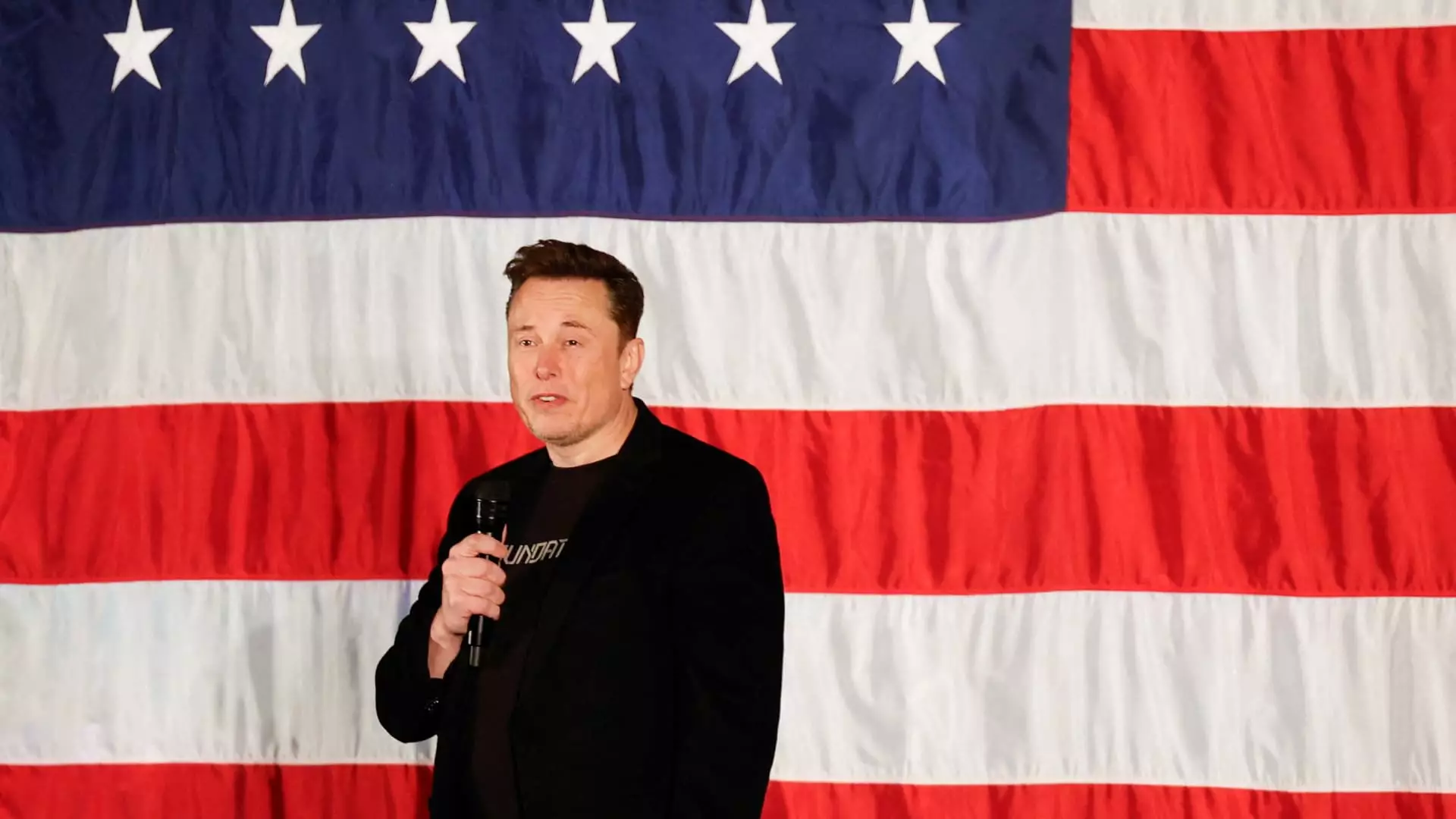In a surprising turn of events, a legal dispute has emerged surrounding Elon Musk’s political action committee (PAC) and its controversial $1 million daily lottery initiative. Launched with the intention of incentivizing voter participation in key swing states for the upcoming presidential election, the program has sparked serious legal challenges from Philadelphia District Attorney Larry Krasner. This article examines the implications of this case, focusing on the legal arguments presented, the underlying motives of the parties involved, and the broader context of political influence in elections.
The lawsuit against Musk and his PAC accuses them of operating what could be considered an illegal lottery under Pennsylvania state law. Krasner’s office claims that the lottery is not only an unlawful gambling operation but also constitutes an attempt to sway voter opinion ahead of a crucial election featuring Donald Trump and Kamala Harris as prominent candidates. The argument hinges on whether distributing monetary prizes can indeed be classified as a lottery and whether such actions manipulate the electoral process.
As the District Attorney contends, this initiative is not merely a generous act by a billionaire but rather a calculated risk to distort democratic engagement. Musk’s support for Trump and his motives in promoting voter registration are under scrutiny, raising the question of whether financial incentives can genuinely uphold democratic values or if they undermine electoral integrity.
The recent ruling by U.S. District Judge Gerald Pappert, which returned the case to state court, is noteworthy for several reasons. Judge Pappert dismissed claims from Musk’s legal representation that the lawsuit warranted federal jurisdiction due to its electoral implications. His ruling emphasized that the crux of the case revolved around state law issues rather than any federal questions needing resolution. This evokes essential considerations about jurisdiction in political cases and suggests an inclination toward local governance in electoral matters.
Furthermore, the ruling represents a setback for Musk’s team, which sought a more favorable forum in the federal system. As the legal battle shifts back to local courts, there is heightened potential for Krasner’s office to swiftly secure an injunction to halt the lottery, effectively placing a temporary block on Musk’s high-stakes initiative.
Implications for Fundraising and Electioneering
Musk’s lottery initiative, which includes awarding daily sums until Election Day, raises significant concerns about the ethical dimensions of financial giveaways in political campaigns. While intended to increase voter engagement, this tactic blurs the line between incentivizing participation and outright electioneering. The potential influence of wealth in swaying electoral outcomes cannot be understated, especially in an age where campaign financing is already fraught with complexities and concerns about transparency.
In analyzing the implications, this case could set a precedent regarding how political donations and incentives can be deployed in electoral processes, possibly encouraging calls for stricter regulations on fundraising tactics employed by individuals and PACs. This scrutiny extends beyond Musk, as various wealthy figures may consider similar approaches to impact electoral outcomes in the future.
As the case returns to the Philadelphia County Court of Common Pleas, both Musk and Krasner’s offices stand ready for further legal skirmishes. Krasner’s legal team has expressed anticipation for an expedited hearing, indicating a pressing urgency to address what they consider unlawful practices. Meanwhile, Musk’s representatives have yet to issue a public response, leaving room for speculation regarding their next moves.
This situation underscores a broader narrative about the intersection of wealth, politics, and law in contemporary America. As this saga unfolds, it will serve as a critical case study on the responsibilities of influential individuals in democratic societies and how their actions can be scrutinized within the frameworks of legality and ethics.
The legal showdown between Larry Krasner and Elon Musk’s PAC is more than just a lawsuit; it represents a fundamental clash between innovation in political campaigning and the longstanding principles of electoral integrity. As both sides prepare for the upcoming proceedings, the outcome could resonate beyond Pennsylvania, influencing how financial strategies in political campaigns are perceived and legislated across the nation. For now, the nation’s eyes will remain focused on this pivotal case, awaiting further developments in a story that questions the very fabric of democratic engagement.


Leave a Reply